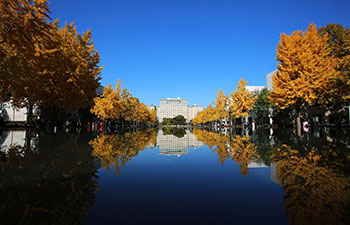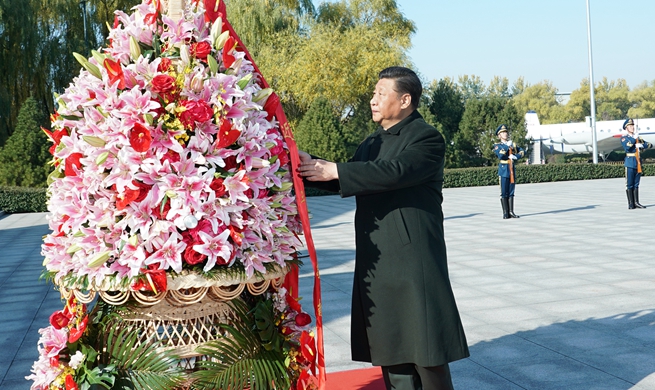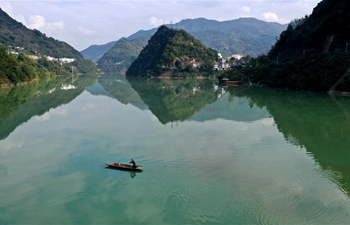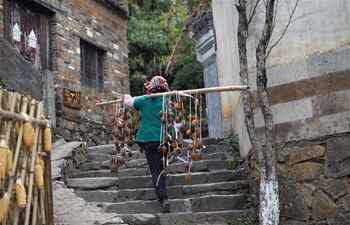by Alessandra Cardone
ROME, Nov. 8 (Xinhua) -- Some 60,000 migrants aged 15-17 who arrived in Italy between 2014 and 2018 needed continuous support to successfully complete their transition to adulthood, three United Nations agencies urged in a report here on Friday.
The study, commissioned by the UN refugee agency (UNHCR), the United Nations Children's Fund (UNICEF), and the International Organization for Migration (IOM), was unveiled at a conference held at the Foreign Press Association in the Italian capital.
"Between 2014 and 2018, over 70,000 unaccompanied foreign minors arrived to Italy by sea, and 90 percent of them were aged between 15 and 17 years," the three UN agencies jointly stated.
"Our report highlights the 'triple transitions' they face when turning 18."
"They live through the passage from adolescence in adulthood, from living in one country to another, and though the emotional trauma suffered when fleeing home and during the dangerous journeys they undertook," they explained.
Titled "At a crossroad. Unaccompanied and separated children in the transition to adulthood in Italy", the research was carried out by the Italian Foundation on Initiatives and Studies on Multi-ethnicity (ISMU) in cooperation with University of Roma Tre and University of Catania.
It gathered personal stories of hundreds of young boys and girls -- still minors or barely of age -- held in hosting centers in the Italian regions of Sicily, Lazio and Lombardy.
"Recognizing the complex nature of the children-adult distinction, and acknowledging that persons coming of age have specific needs, lies at the heart of this research," noted Roland Schilling, UNHCR representative for Southern Europe.
According to the findings, the complex procedures to obtain legal papers, the difficulties to access education, training and job placement, and the need to overcome emotional traumas were the key challenges hampering the positive transition of young migrants to adulthood. For girls, there is also the risk of possible violence.
"The potential loss of continuous support for tens of thousands of them -- based on an artificial age-based distinction -- is likely to put these youths at further risks of social isolation, violence, abuse and uncertain future," said Anna Riatti, UNICEF country coordinator for the migration programme in Italy.
Researchers believe that the factors most helping the young refugees and migrants in this sensitive phase of life include the positive relationships they have with their peers and their tutors, an easy access to education, professional training and job opportunities, and also safe and adequate housing.
The UN agencies offered recommendations to both the Italian authorities managing migration flows and the European Union (EU).
Suggestions include providing the young migrants coming of age with enough information about human trafficking and sexual exploitation, and to encourage them to participate in social and recreational activities.
The report called for a common system in the EU to collect information and data on all unaccompanied migrant children and those who have barely come of age to strengthen protection systems in each country of the bloc.
The UN agencies also urged the EU to allocate resources to support the best practices outlined in their report, within the Asylum, Migration and Integration Fund (AMIF) set up by the Union for the period 2014-2020.
The AMIF aims at financially supporting member states to promote an efficient management of migration flows, and was provided with 3.137 billion euros for the period 2014-2020, EU information showed.
Some 1,292 unaccompanied minor migrants arrived in Italy by Oct. 31 this year, compared to 3,536 in 2018, and 15,779 in 2017, data from the Italian Interior Ministry indicated. (1 euro = 1.10 U.S. dollars)

















